Belize Partners With Mexico and Guatemala to Preserve Groundwater
The National Hydrological Service of Belize is seeking to secure a tri-national groundwater management collaboration with Mexico and Guatemala. Belize already holds such a partnership with the neighboring countries, but now aims to elevate the project in order to maintain its groundwater reserves. Today, a groundwater conference was held at the Belize Civic Center with representatives from various organizations to discuss the resource preservation. News Five’s Britney Gordon attended the event for more information.
Britney Gordon, reporting
In an effort to preserve Belize’s groundwater reserve, the Belize Hydrological Service held a workshop alongside partners at the United Nations Educational, Scientific and Cultural Organization, and the Green Climate Fund. The workshop aims to secure international agreements with neighboring countries that will ensure the adequate management of water resources in the region. Tennielle Hendy, Principal Hydrologist at the National Hydrological Service, gave us some more information.
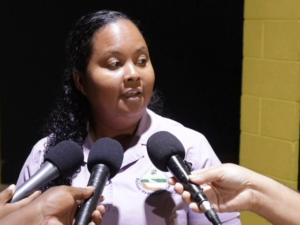
Tennielle Hendy
Tennielle Hendy, Principal Hydrologist, National Hydrological Service
“What we’re hosting today is an internationally shared aquifer resources management workshop. Belize has transborder watersheds. We have five. All of them we share with Guatemala, and one we share with both Guatemala and Mexico. We have a dependency ratio of thirteen percent which means that we rely on our neighboring countries for our water resources. So it’s critical for us to foster partnership, cooperation, collaboration to manage this very delicate and finite resource.”
Hendy explained that Belize holds several partnerships in order to manage the country’s water reserves and is on its way to securing collaborations that will provide a more in-depth monitoring system.
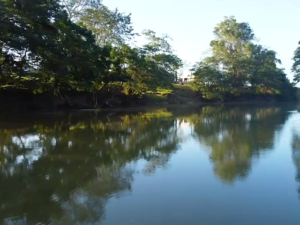 Tennielle Hendy
Tennielle Hendy
“So we have collaboration, both in country, and we have with our regional partners. So Belize has a by national water commission with Mexico, of which ConAgua, which is like their IWRM agency in Mexico that collaborates with us on several different actions. We’ve completed quite a number with them. We’ve done a water quality monitoring program on the Corozal Bay, the Rio Hondo, looking, at what’s the pollutants coming out of that system that we share. We have next up for us to establish a binational monitoring system with Mexico and Belize. So we’re looking forward to that. With Guatemala, we have water quality discussions through the joint OAS committee which fosters collaboration between us and Guatemala as well.”
In attendance at the event was a Science Sector Program Specialist at UNESCO, who shared what kind programs are being implemented by the organization when working with Belize.
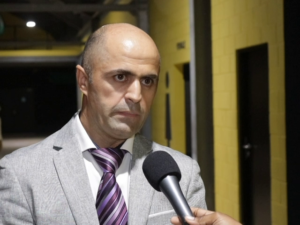
Alibek Otambekov
Alibek Otambekov, Science Sector Program Specialist, UNESCO
“We have different programs that make a specific focus on the transboundary issues and one of them is Menin Biosphere, which advocates and promote the Biosphere Reserve and Geoparks, including transboundary Biosphere Reserve. There are about twenty-two Biosphere Reserves worldwide, which are serving across the different countries. And also there’s a program of intergovernmental hydrology program in the science sector, which serves the water issues related to climate change and to disaster risk reduction and this also bring our focus to Belize issue of the transboundary issues with with Mexico and Guatemala.”
Hendy stated that the main objective for this workshop is to secure another tri-country project with Mexico and Guatemala, which would allow for a more dynamic management system to be implemented in the countries.
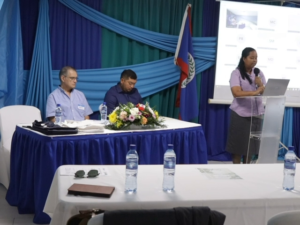 Tennielle Hendy
Tennielle Hendy
“We’re hoping that we can get a tri-country project. We have one, which is where what’s what we’re presenting here today on the Yucatan Peninsula on the aquifer, and we’re looking forward to having more actions like this. But we want to upscale. We’re trying to pilot dynamic water resources assessment tool, which was said before, in the speech that is like your bank account. It’s like your water bank account. We need to know how much water is there. What can we take out? What do we need to leave for ecosystem services? What can we, I don’t want to say waste, but what can we, have not so much control over? But for that, we need groundwater information. We need to know the thickness of the aquifer. We need to know how much water is down there. What’s How long will it take to recharge that aquifer? Right now we’re operating on limited information and so we are trying to advance this knowledge, so we’re hoping that we get another project that will help us to delve deeper into getting the information we need so that we can create the water balance for Belize. If you’re off balance, you fall down. And we don’t want to do that.”
Britney Gordon for News Five.





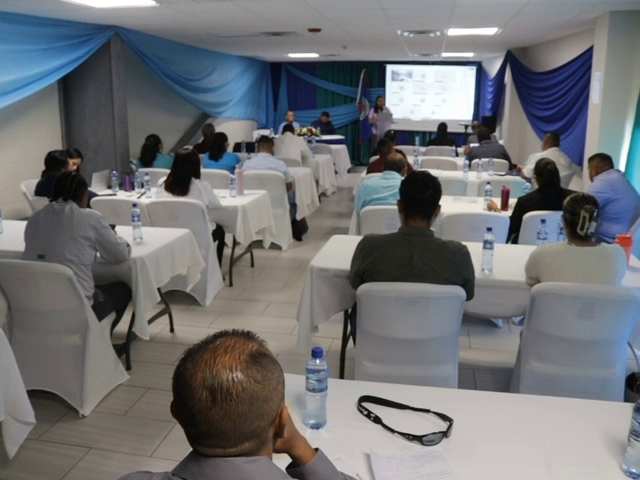
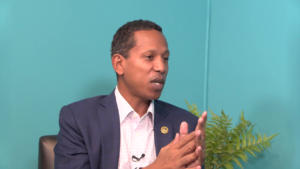
Facebook Comments